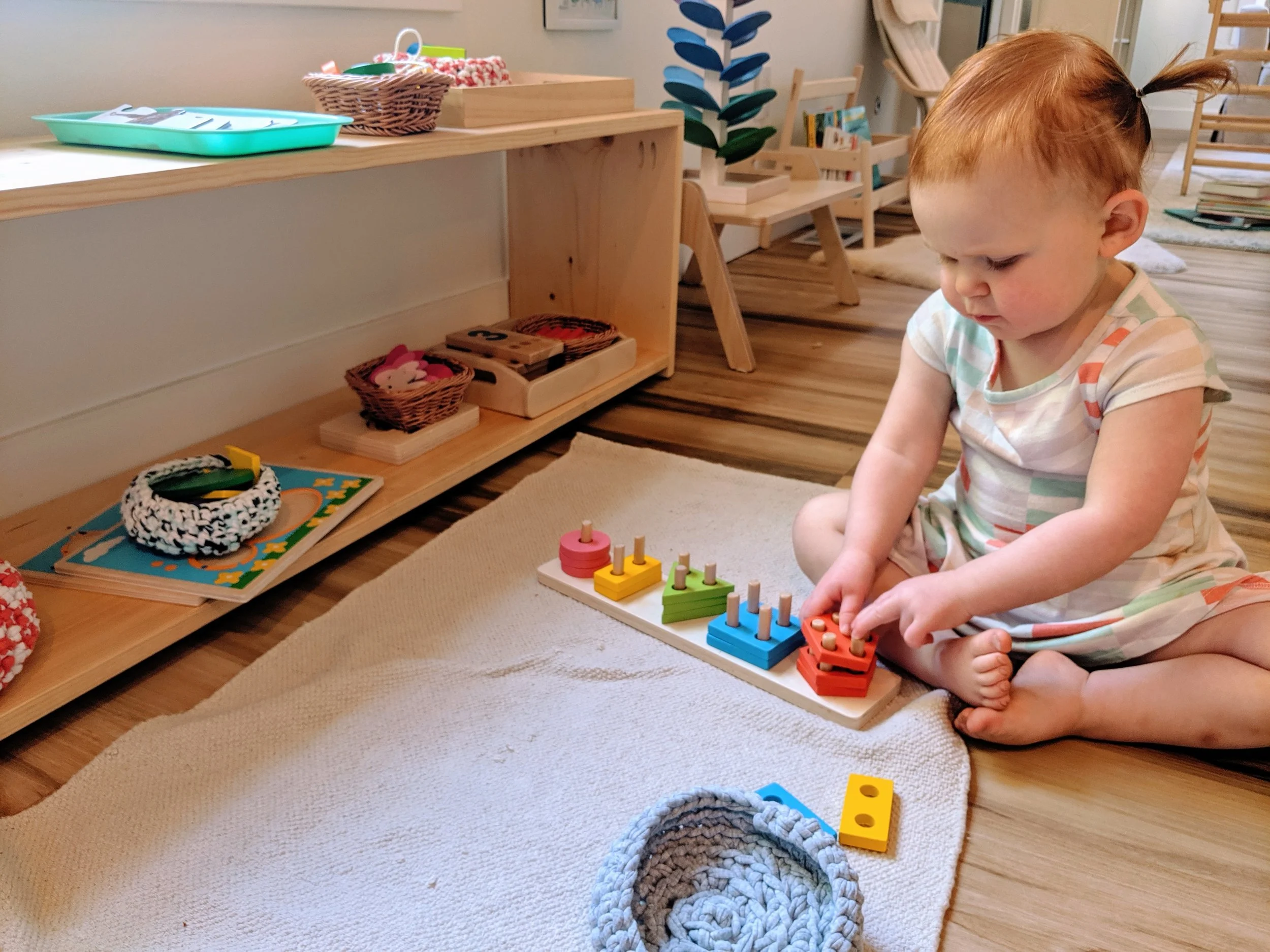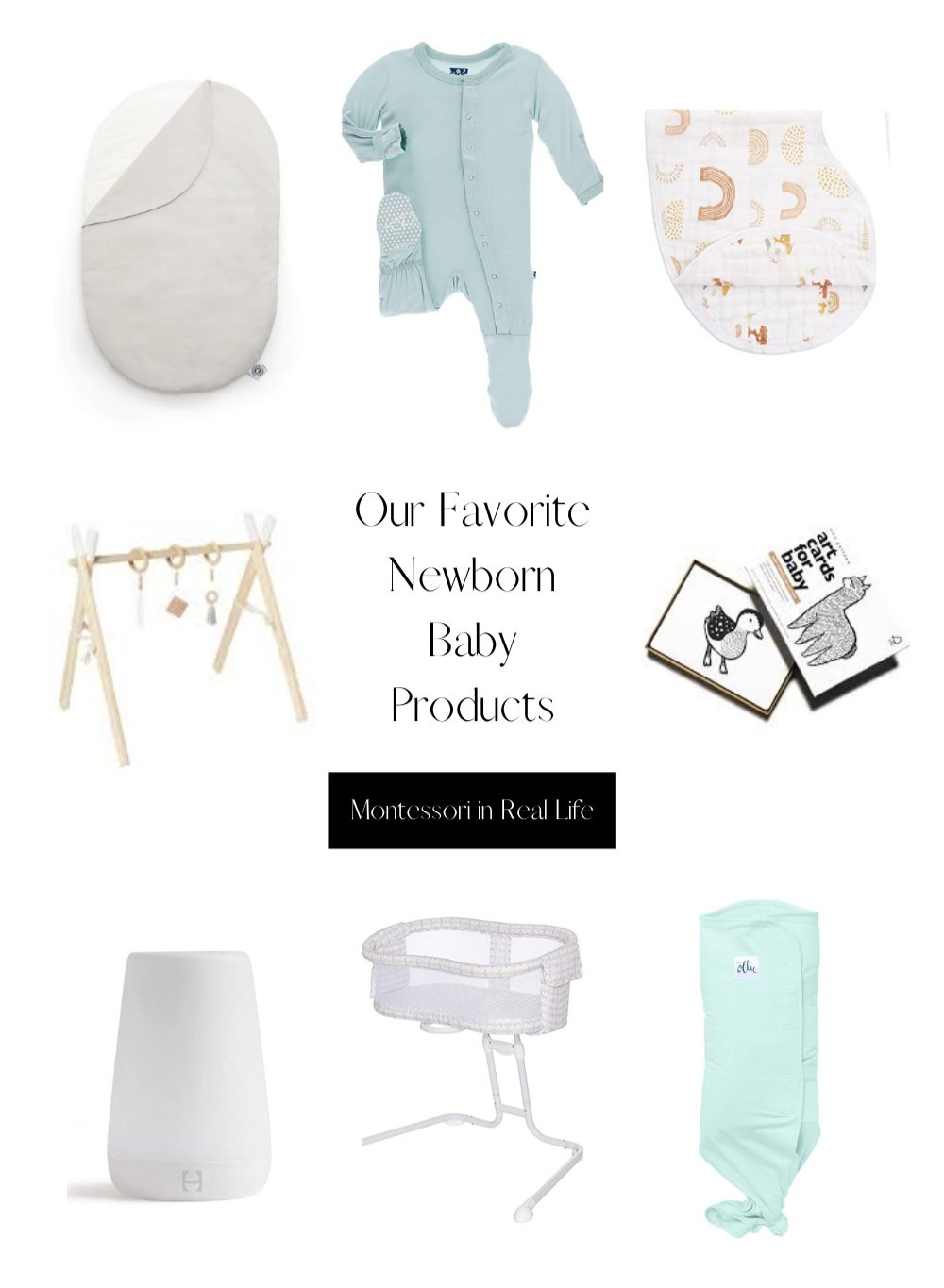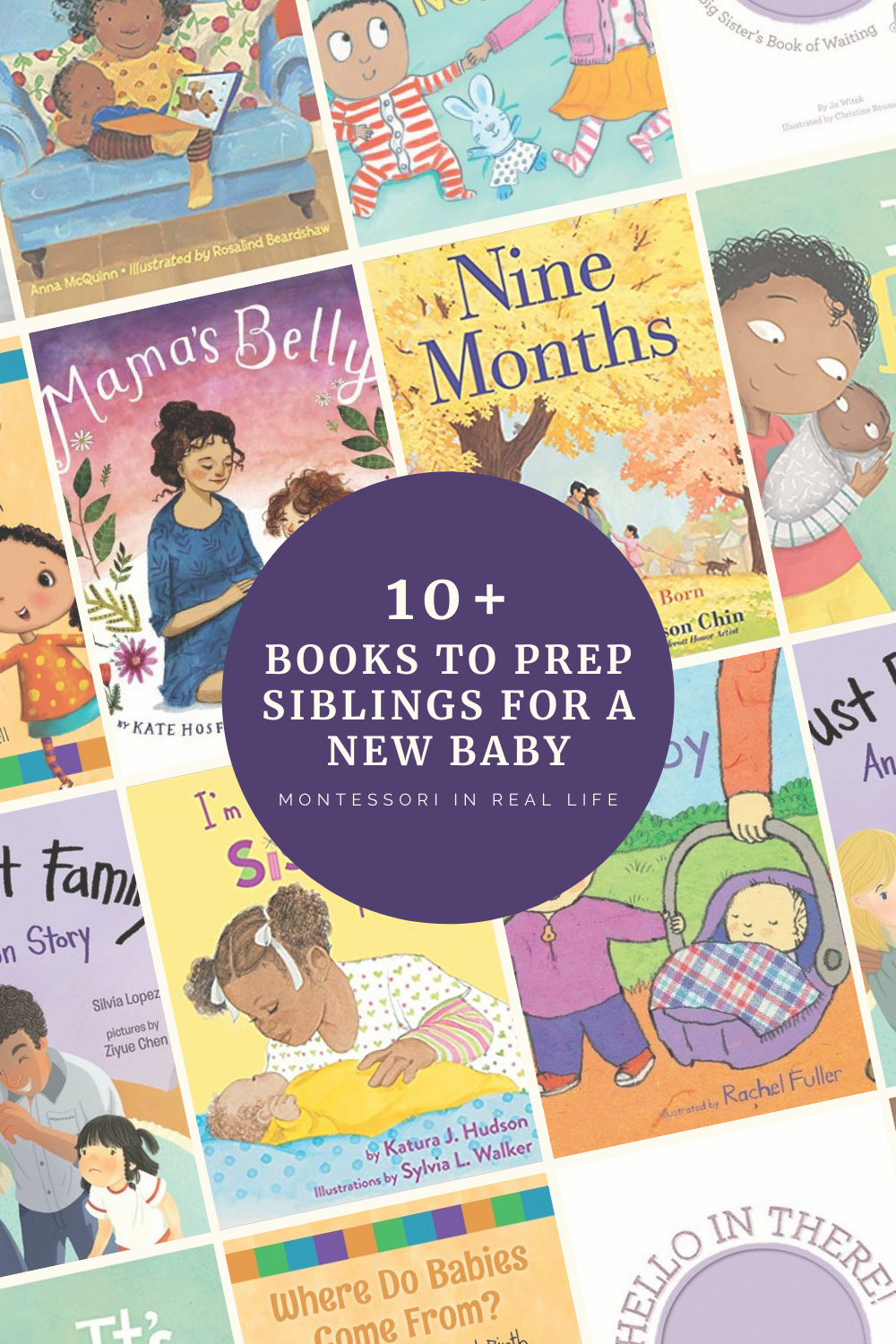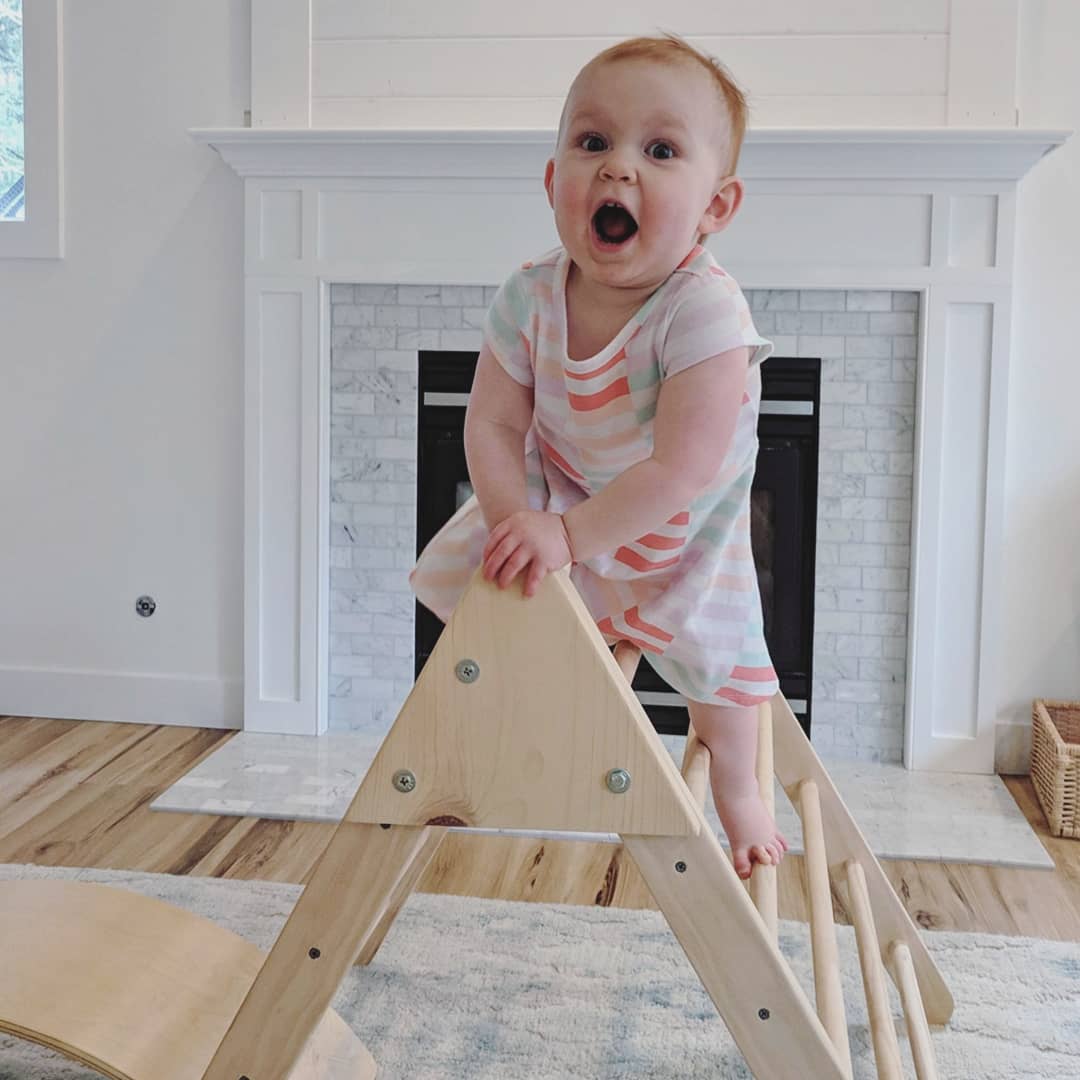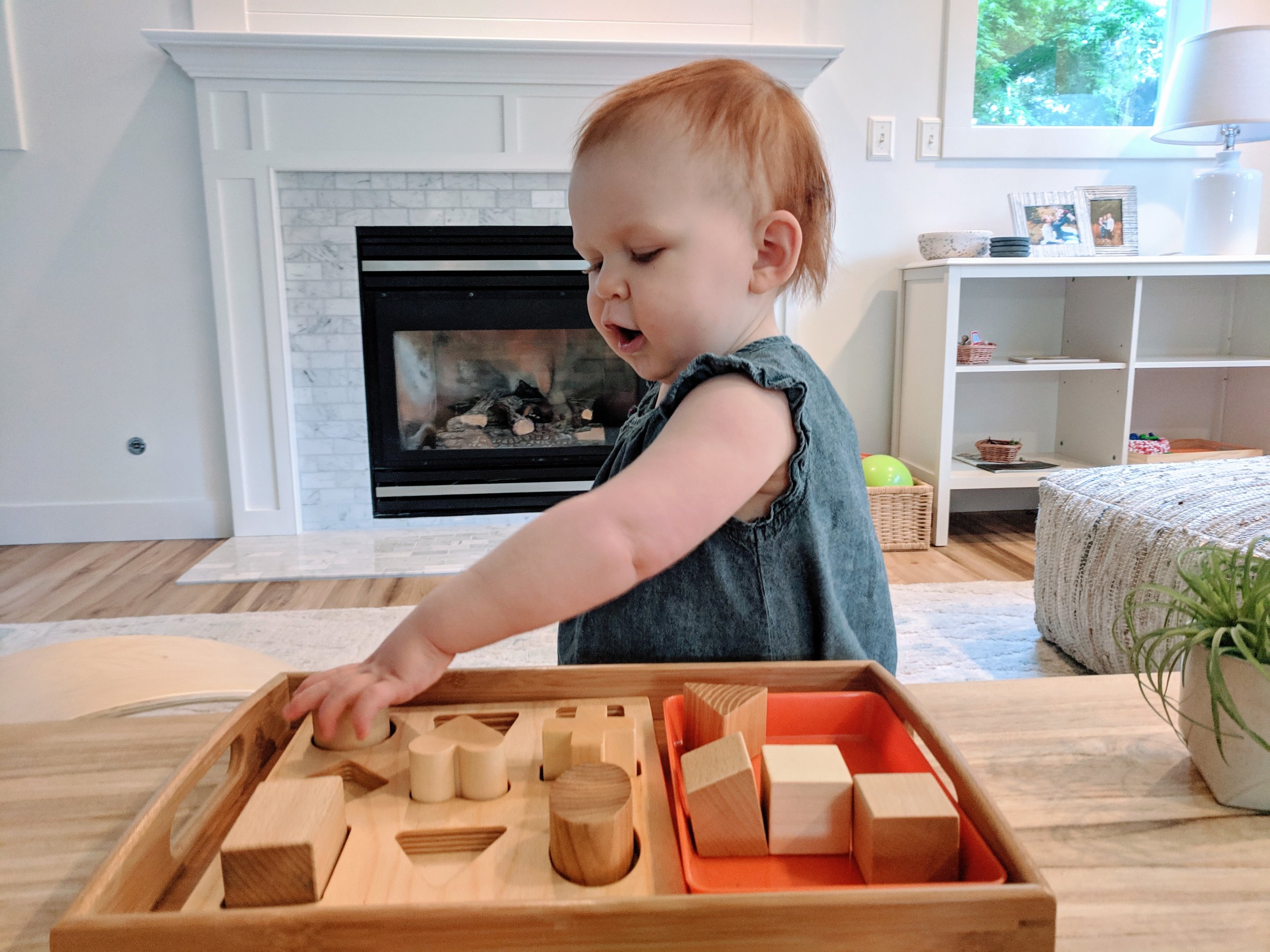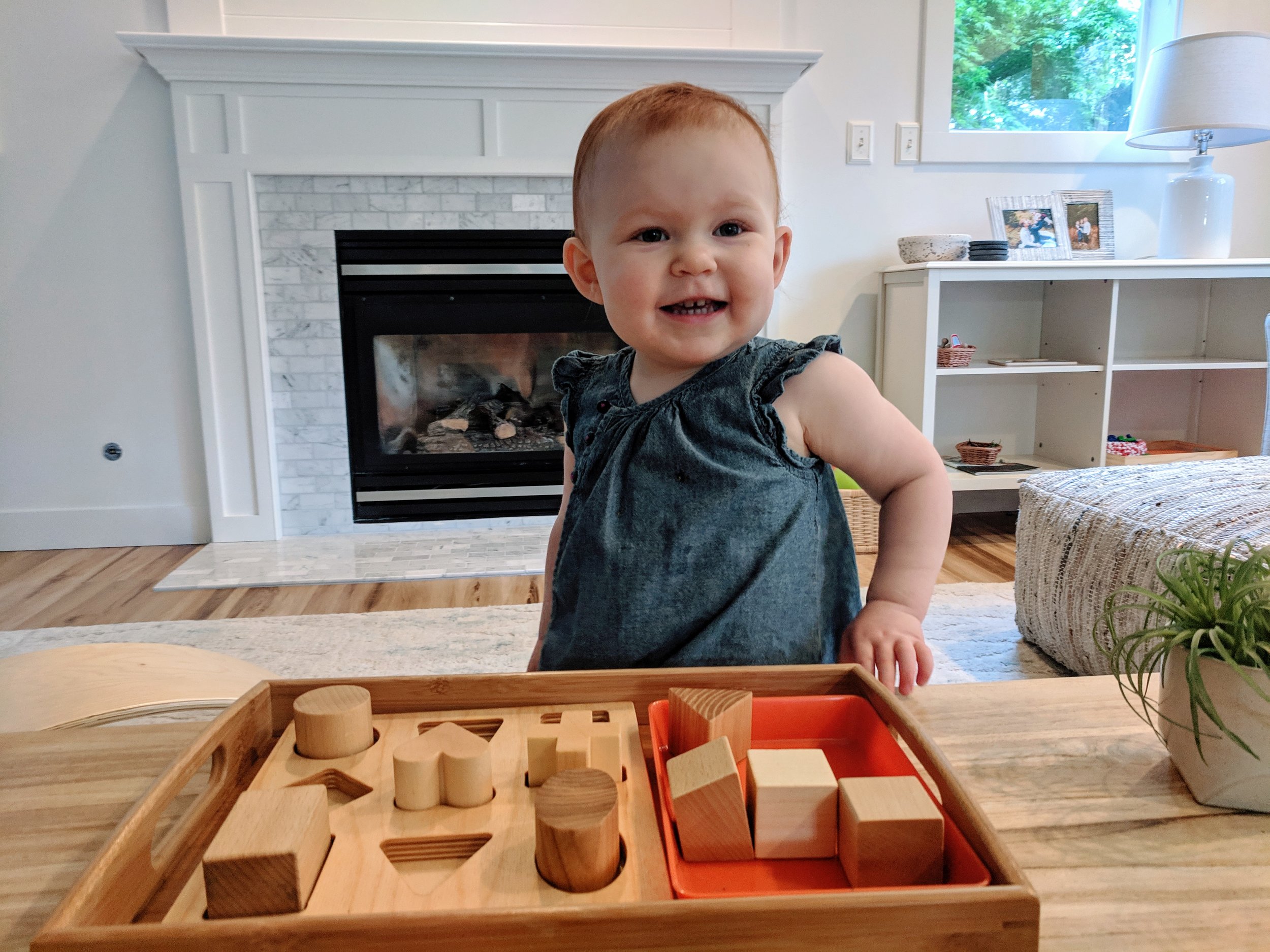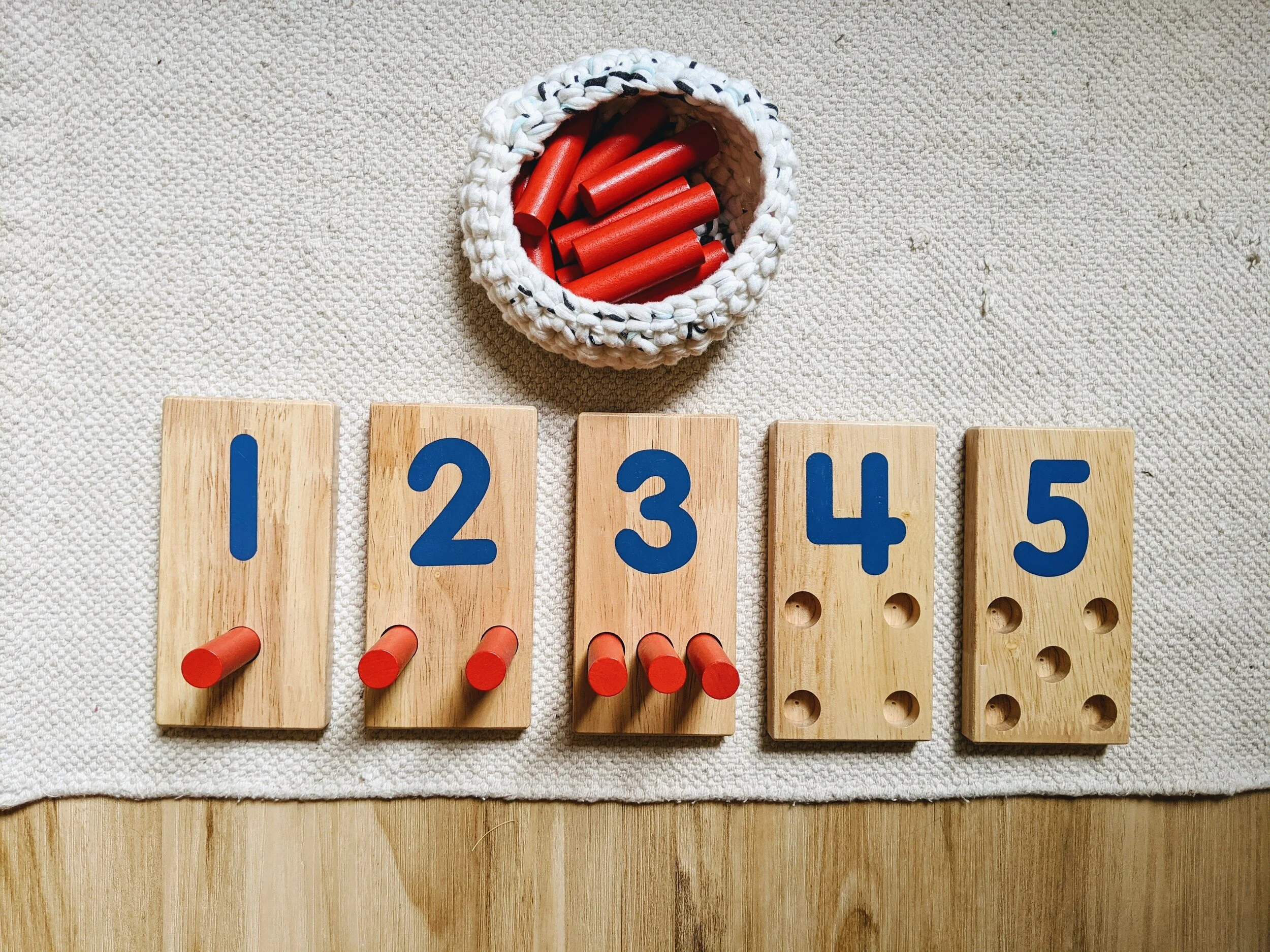Encouraging Independent Play
Montessori in Real Life
Promoting independence is a key component of Montessori, in large part, because it allows the child to feel respected, capable, and content. One of the best ways to encourage independence is through play. If toddlers can feel comfortable and confident playing on their own, they will also feel capable of other tasks on their own. Play is such valuable time for children to learn, imagine, take chances, and make mistakes and then do-overs. For my husband and I, it’s important to raise kids who are able to play by themselves and create fun with what is available, rather than need entertainment to find joy. It’s about finding the right balance for your family. While I love engaging in activities with my children, I also really appreciate being able to complete a task myself without a clinging child. Even better is the feeling that we don’t need to rush into my toddler’s bedroom in the morning, because she is happy to play with her dolls or flip through books in her room, just as she is before she falls asleep.
It’s never too early or too late to encourage meaningful, independent play. Here are some tips for promoting independent play in babies, toddlers, and beyond.
A “Yes Space”
This term was coined by Janet Lansbury. We want to create a space that is safe for your child to play freely. It’s nearly impossible to expect a child to play independently if we have to keep hovering and telling them “no”. Whether it’s your living room or a play room, babies and toddlers need to play in a space where they can safely explore. Ideally, children have acccess to most of the house, safely. When D has gone through phases of not being interested in her toys, she does explore the drawers in the kitchen accessible to her, uses our child-size swiffer to dry mop the floor, or “reorganizes” our pantry. Anything that is unsafe to her is kept locked or up high. As long as she isn’t causing harm or a major mess, she is okay playing in our main living area, with her toys, or not.
Appropriate Toys
Children (including babies) are more likely to engage with a toy if it is just the right level of challenge for them. Too easy, and they are bored. Too difficult, and they get frustrated. Different children have different thresholds for challenges as well. If we want our children to engage in play on their own, we have to set up an inviting and challenging environment for them. If you aren’t sure where to start, The Montessori Guide offers month by month activities, up to 21 months (soon to be 24 months!). Additionally, rotating the shelves (a few toys at a time, as needed) helps to keep their environment interesting. If your child is really struggling to play on their own, consider starting with open-ended toys (such as magnets or blocks) or toys with movement (such as a car tracker), that engage almost all ages and types of children.
“Together Time”
I find D is much more open to playing on her own when she’s already had some quality time with me. This was especially true during her more clingy phases. Each day I try to set up some time for her and I to engage in play together (when I’m showing her a new work or we are prepping food together) and some time for her to play alone when I’m trying to get something done (or just nursing s!). Even with S, I apply this kind of balance: I spend a lot of time holding and snuggling him, but other times I let him lie down and gaze at his mobile or look around on his tummy. Even diaper changes and potty breaks can count as quality one-on-one time if we are focusing our attention on our child.
Make Play a Habit
This may seem obvious, but sometimes we forget or get too busy to make play a part of the daily routine. Play doesn’t have to be with Montessori toys in a Montessori environment; it can also be exploring nature or playing with cardboard boxes. The important thing is that we allow children to have time to just be themselves and explore their own environment each day. Toddlers, especially, thrive on figuring things out for themselves, so we don’t need to “play for them”. Even if you’re sitting with your child playing, avoid fixing or correcting their play. We want them to feel like their play or work matters, which will in turn make them more excited to play on their own. If your child is only in the habit of playing with you, start small by just moving a few feet, or only leave for a minute, and gradually increase as they get more comfortable playing on their own.
Limit Over-Stimulation
It may seem counter-intuitive, but often the more a child interacts with a screen or electronic toys, the more “bored” they are. When children, even toddlers, get used to the sensory overload that TV shows and loud, blinking toys provide, they can develop a shorter attention span in general. This then translates to less interest and ability to concentrate on more active and independent types of play. This isn’t always the case, but it can be. In our family, we do not make screen time a part of our day. But you have to do what works for your family, and sometimes that includes screens. :)
With all this being said, it’s helpful to remember that babies, toddlers, and children of all ages go through periods of wanting to be more or less independent. When D was around 18 months old, she went through a major separation anxiety phase, and was not interested in playing alone. I continued to encourage her to play on her own but didn’t force it. I still let her know when I needed to separate myself to finish a chore and I let her choose to follow and watch me or play by herself. For a while, she just followed me. Over the course of a month or so, she gradually began to enjoy her independent play time again. Like all aspects of raising children, phases come and go.

